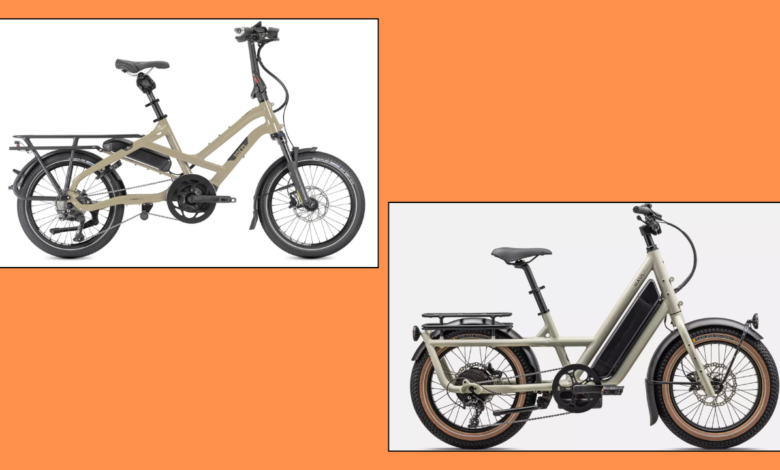City of Portland adds two electric cargo bikes to vehicle fleet – BikePortland

The City of Portland’s vehicle fleet just got a bit more bikey.
The Portland Bureau of Transportation has purchased two new electric-assist cargo bikes to help get official city business done: a Tern HSD and a Specialized Globe Haul. PBOT Communications Director Hannah Schafer recently shared more with BikePortland about the bikes and what they’ll be used for. She said both bikes were bought for specific uses and not as general loaner bikes.
Here’s more about the bikes from Schafer:
- Blue Tern HSD – This bike is outfitted with a large front rack and two high capacity panniers for our Active Transportation team to use for delivering materials to various locations around the city, such as delivering cartons of bike maps to Multnomah County Library or transporting bike helmets for bike skills workshops. We’ve also attached a bike trailer to it, for extra extra capacity, and hauled up to nine boxes of bike maps (approx. 35 lbs each) to the library’s distribution warehouse.
- Specialized Globe Haul – This e-bike, with a higher top-speed of 28 mph, is being used by staff in our Traffic Operations team to conduct field work. That includes traffic observations and investigations, work order inspections, and more. It is also shared with staff in our Temporary Traffic Control team to use for special event work. The team has found that for a lot of the work, it is easier and more convenient to use an e-bike versus a car, or at the very least offers some additional multimodal flexibility. It also gives staff who may not be regular bike commuters the valuable experience and perspective of using the road when biking.
The Tern HSD has a retail price of about $4,300 and the Specialized goes for about $2,800. Schafer said both teams used their program budgets to fund the bikes.
If you see PBOT staff on these rigs, be sure to do the nod and wave. We want to see more e-bikes in the city fleet!
In related news, PBOT announced late last month they’re moving forward with their Zero Emission Delivery Zone pilot project. That project aims to encourage a transition to zero emission vehicles by commercial fleets that work in the central city and was funded with a $2 million federal grant.




